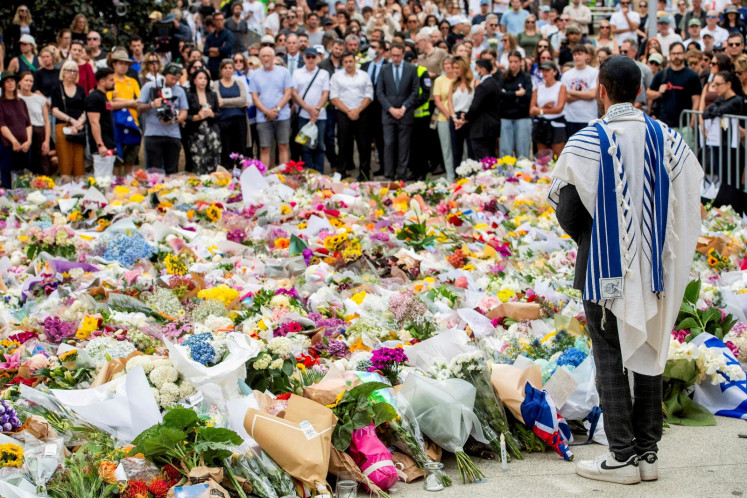Popular Reads
Top Results
Can't find what you're looking for?
View all search resultsPopular Reads
Top Results
Can't find what you're looking for?
View all search resultsBandwagoning is (really) a thing now
The economy may be heading south, but many individuals with money to spare have been looking for opportunities, including shares at bargain prices, during the COVID-19 pandemic. And with time to spare too, newbies are learning how to play the game.
Change text size
Gift Premium Articles
to Anyone
B
randon has been staring at the monitor for hours, skipping his lunch break, apparently taking part in a webinar on stock investing. “I am considering equity investment. But isn’t it risky amid this economic slowdown?”
“Try it anyway. But proceed with caution,” I replied.
Brandon, a 25-year-old entrepreneur, is actually a late-comer to the Indonesian equity market.
The economy may be heading south, but many individuals with money to spare have been looking for opportunities, including shares at bargain prices, during the COVID-19 pandemic. And with time to spare too, newbies are learning how to play the game.
The Indonesia Central Securities Depository reported that the number of single investor identifications (SIDs), an investor identity number used for trading securities, rose by 530,000 to 3 million, an increase of nearly 22 percent, in the first six months of 2020.
On June 8, the value of stocks traded by retail investors surpassed that of institutional investors for the first time in the 13-year history of the Indonesia Stock Exchange.
Equities are riskier instruments than government bonds and time deposits. With the looming economic recession, many investors would be inclined to go for these low-return but safe instruments. A handful of Indonesians are going in the other direction. Going into the equity market at this time is not for the fainthearted.
The S&P500 plunged by a third in one month in February to 2,237 from 3,373. But in less than five months, the S&P500 recovered to pre-pandemic levels, even breaching 3,500, an all-time record in August. Contrast this with the four years it took for the S&P to recover after the 2008 financial crisis.
This time, after the initial panic selling, the market is stabilizing, especially with news of nations making progress in the development of COVID-19 vaccines even as infection rates continue to rise in the United States.
Here in Indonesia, the Jakarta Composite Index (JCI) nosedived 30 percent in March. Unlike in the US, the capital market here is still consolidating, all the more reason to consider buying now before stock prices fully recover.
The average Price to Earnings (P/E) and Price to Book Value (P/B) ratios for all publicly listed companies in Indonesia were recorded at 11.5 times and 1.7 times respectively in August compared with the three-year average of 14.9 times and 2.5 times to suggest that stocks are undervalued.
Corporate earnings, battered by the pandemic lockdowns, should concurrently recover when the restrictions on travel and work have been eased.
The market may be further boosted with President Joko “Jokowi” Widodo’s announcement that mass vaccination for COVID-19 could begin as early as January 2021.
Nevertheless, I do not recommend you put all your money into equities, as investing with a backup plan is like sedia payung sebelum hujan, an Indonesian proverb that means preparing an umbrella before it rains.
There are still some unanswered questions to consider: Will the vaccine be successful, or will the economy be worse than expected? If the vaccine is unsuccessful, will it take a heavy toll on investor confidence?
The government has produced a worst-case scenario of a 1.1 percent gross domestic product contraction in 2020. What if it turns out worse? Will it again induce major sell-offs?
The market is volatile, and many of the concerns that the economy will nosedive are valid.
So, new investors like Brandon face the same choices of either to hop on the bandwagon and plunge into the stock market with all its risks, or play it safe but possibly miss out on the opportunities.
That’s your call.
Unlike in the US, the capital market here is still consolidating, all the more reason to consider buying now before stock prices fully recover.
***
Research analyst at an Indonesia-based securities company










